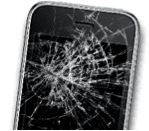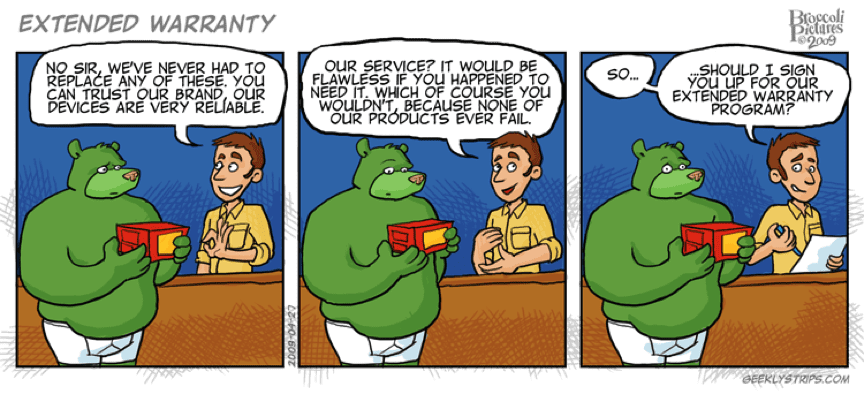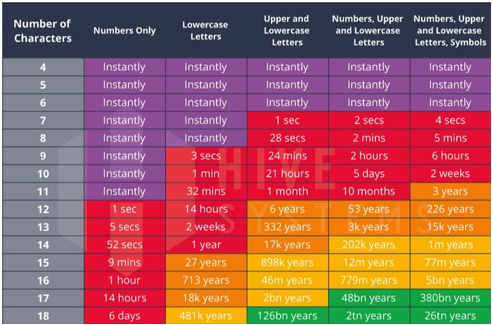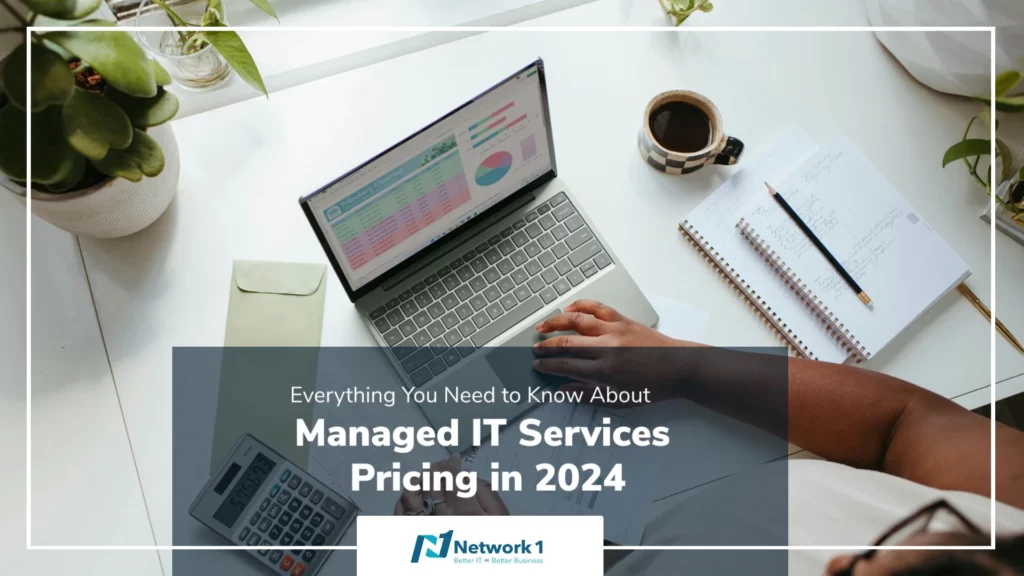By David Gracey
 According to Consumer Reports, nearly 74% of in-store shoppers receive a sales pitch for an extended warranty service plan when buying an electronic device or appliance. I noticed this trend expand rapidly starting about 10 years ago or so and it has grown into a money making machine for the retailers. So is the purchase of an extended warranty worth it? Let’s find out.
According to Consumer Reports, nearly 74% of in-store shoppers receive a sales pitch for an extended warranty service plan when buying an electronic device or appliance. I noticed this trend expand rapidly starting about 10 years ago or so and it has grown into a money making machine for the retailers. So is the purchase of an extended warranty worth it? Let’s find out.
Disclaimer: This discussion is about consumer-based products. Equipment for business use has entirely different scoring criteria, which I won’t dive into here. (If you are wondering, business equipment should always have an active warranty.)
Whether buying a new iPhone, the latest high-definition television, or a washing machine to clean that green and white state championship football uniform your son wore last week, we all worry about what we will do when a device or appliance needs service. Unlike Cynthia Tanner (my mother-in-law and subject of the infamous Cynthia’s Corner), most of us don’t have our own personal service department to assist us when the screen cracks, it won’t turn on, or water begins pouring out unexpectedly. But your retailer has the answer to all of your gadget anxiety! Buy an extended warranty and all your worries will disappear. The cost is ‘only’ 10% – 20% more on top of what you paid for the device. Isn’t that worth the hassle factor?
The short answer is NO. As Elon Musk says, “Let’s break it down to the math.” (Actually, he said ‘physics,’ not ‘math,’ but you get my point.)
Take AppleCare+, which is Apple’s service plan: The cost of the plan is $99 up front with a two-incident maximum benefit. If you crack your screen, the deductible is $79, so the total cost is $178. With no warranty at all, you can take your iPhone into an authorized repair store and pay $109 for a replacement screen fully installed, which usually takes a couple of hours. There are some additional benefits to AppleCare+, such as battery replacement and better technical support, but most of us do not use these additional services.
 Low risk: According to some sources, 20% of us crack the screen of our phones in the first year and 35% during the life of the phone.
Low risk: According to some sources, 20% of us crack the screen of our phones in the first year and 35% during the life of the phone.
Motive: Rule #1 is follow the money. Retailers make more margin on the warranty service plans than they do on the sale of the devices and appliances. The warranties are underwritten by a third party so the retailer simply processes the order. Profit margins on the service plans can easily exceed 50% and they require very little effort to implement.
Manufacturers’ warranties: Different manufacturers offer varying warranties. Make sure you understand what kind of warranty you get when you make the initial purchase. For a larger item, shop around and compare products. If something breaks, not all warranties are created equal.
Declining prices: Items such as wide screen televisions experience price drops about 20% – 30% each year. That means that after 2-3 years, from a financial perspective it is better to buy a new unit than repair the old one. Plus, you get a screen with better technology.
Reliability: Products are getting more reliable, not less. Consumer surveys and repair records show this trend has continued, so the likelihood of you needing a repair will decline.
 Credit card benefits: Check your credit card conditions for additional benefits. American Express, for example, extends the manufacturer’s warranty for one year if you use their card when making the purchase.
Credit card benefits: Check your credit card conditions for additional benefits. American Express, for example, extends the manufacturer’s warranty for one year if you use their card when making the purchase.
Exceptions: You might consider an extended warranty if you are extremely accident prone.
Insurance is meant for big-ticket items like health insurance and your house. (If you are interested, high deductible health insurance plans will fix what ObamaCare didn’t, but that’s a story for another day.) Good insurance is important for these large items to protect you and your family from significant events. For smaller items, skip the service plan and self-insure. Research the product’s reviews, buy a good case and screen protector, and take advantage of your credit card benefits. You’ll be better off in the long run and make Clark Howard a happy man.







